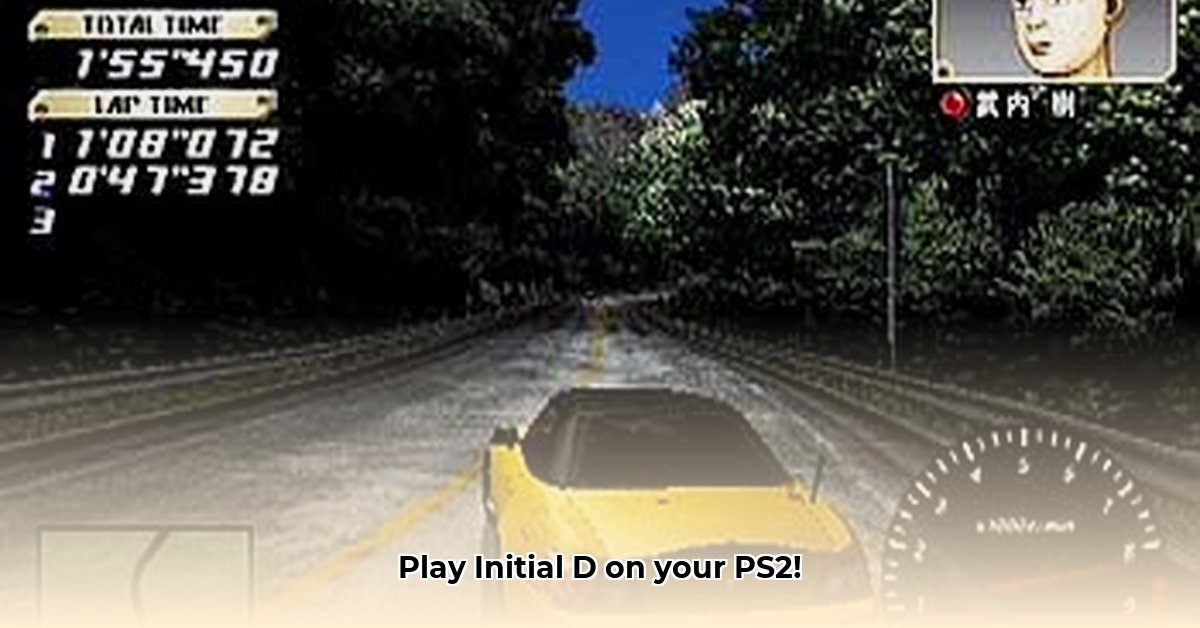
This article delves into the fascinating world of preserving Initial D: Special Stage, a Japanese PlayStation 2 racing game beloved by fans of the anime. We'll explore the technical challenges, community efforts, and legal complexities involved in keeping this digital relic playable for future generations. Understanding these nuances is crucial for anyone interested in preserving gaming history.
The Challenges of Preserving Initial D: Special Stage
Accessing a playable copy of Initial D: Special Stage presents several obstacles. Its exclusive Japanese release limits global access, creating a significant barrier for English-speaking fans. Furthermore, digital games are inherently vulnerable to degradation and loss due to factors like hard drive failures, server shutdowns, and the simple passage of time. This makes preservation a crucial, ongoing challenge. How can we ensure this game remains accessible for years to come?
Fans Rise to the Occasion: A Triumph of Community-Driven Translation
Fortunately, a dedicated community of Initial D enthusiasts has risen to meet this challenge. They undertook the laborious task of translating the entire game from Japanese to English, a feat requiring meticulous attention to detail and an intimate understanding of the game's mechanics. This community-driven effort showcases the power of shared passion and collective action in the realm of digital preservation. But is a fan translation perfect?
The Imperfect Translation: A Necessary Acknowledgement
While the fan translation dramatically broadens the game's accessibility, it's important to acknowledge its limitations. Nuances might be lost in translation, and unforeseen glitches or bugs could arise during the conversion process. This isn't a criticism of the translators' tireless work, but a realistic assessment of the complexities involved in such a massive undertaking. While this translation expands access, its long-term viability requires continued community support and updates. Could this fan translation become obsolete over time, requiring further adaptation to changing emulation technology or shifting cultural contexts?
Long-Term Preservation Strategies: A Multi-Pronged Approach
Securing the long-term viability of Initial D: Special Stage necessitates a comprehensive preservation strategy. This isn't a single solution, but a coordinated effort:
Redundant Backups: Creating multiple backups of both the original Japanese ROM and the fan translation is paramount[1]. Distributing these backups across diverse secure locations (different servers, hard drives, geographical regions) minimizes the risk of total loss. This diversified approach is crucial for mitigating the risk of data loss.
Version Control & Documentation: Each version of the translated ROM should be meticulously documented and archived, creating a historical record of its evolution. This detailed record-keeping is essential for tracking changes, addressing bugs, and facilitating future updates. This detailed history forms a vital part of the preservation project's legacy.
Community Engagement: The ongoing involvement of the fan community is indispensable for long-term viability. Their continued efforts in verification, updating, and problem-solving are absolutely vital to the project's success. A strong community is an invaluable asset for maintaining and preserving digital artifacts.
Navigating the Legal Landscape: Copyright and Fair Use
The legal implications of archiving and distributing fan-translated ROMs are complex. Copyright laws vary internationally, and distributing ROMs without permission is illegal. While the concept of "fair use" provides a potential avenue, it necessitates careful consideration of several factors: transformative use, commercial use, the amount used, and the effect on the market. Navigating this legal minefield requires thorough understanding and, ideally, professional legal advice. This is not an area to approach lightly.
The Future of Initial D and Game Preservation
Preserving games like Initial D: Special Stage requires a collective effort uniting passionate individuals, preservation groups, and the wider gaming community. Despite substantial challenges, the rewards are immense. The preservation of gaming history is a shared responsibility, ensuring that future generations can experience these games, regardless of language barriers or technological hurdles. Continued research and engagement from the fan community are essential ingredients to this success.
Table: Challenges and Solutions in Initial D Preservation
| Challenge | Solution |
|---|---|
| Language Barrier (Japanese Only) | Fan-made English translations, ongoing verification and community updates required. |
| Digital Degradation | Multiple backups stored across diverse platforms and geographical locations. |
| Emulator Compatibility | Thorough testing on various emulators and operating systems, regular updates needed. |
| Legal Uncertainties | Careful adherence to relevant copyright laws; seek legal counsel when necessary. |
The preservation of Initial D: Special Stage is an ongoing endeavor. Through community engagement, robust preservation techniques, and careful legal navigation, we can ensure this beloved racing game continues to captivate and entertain players for years to come.
[1]: This footnote refers to the practice of creating multiple backups, a standard preservation technique. Specific links to backup software or services would be inappropriate here as they change rapidly.